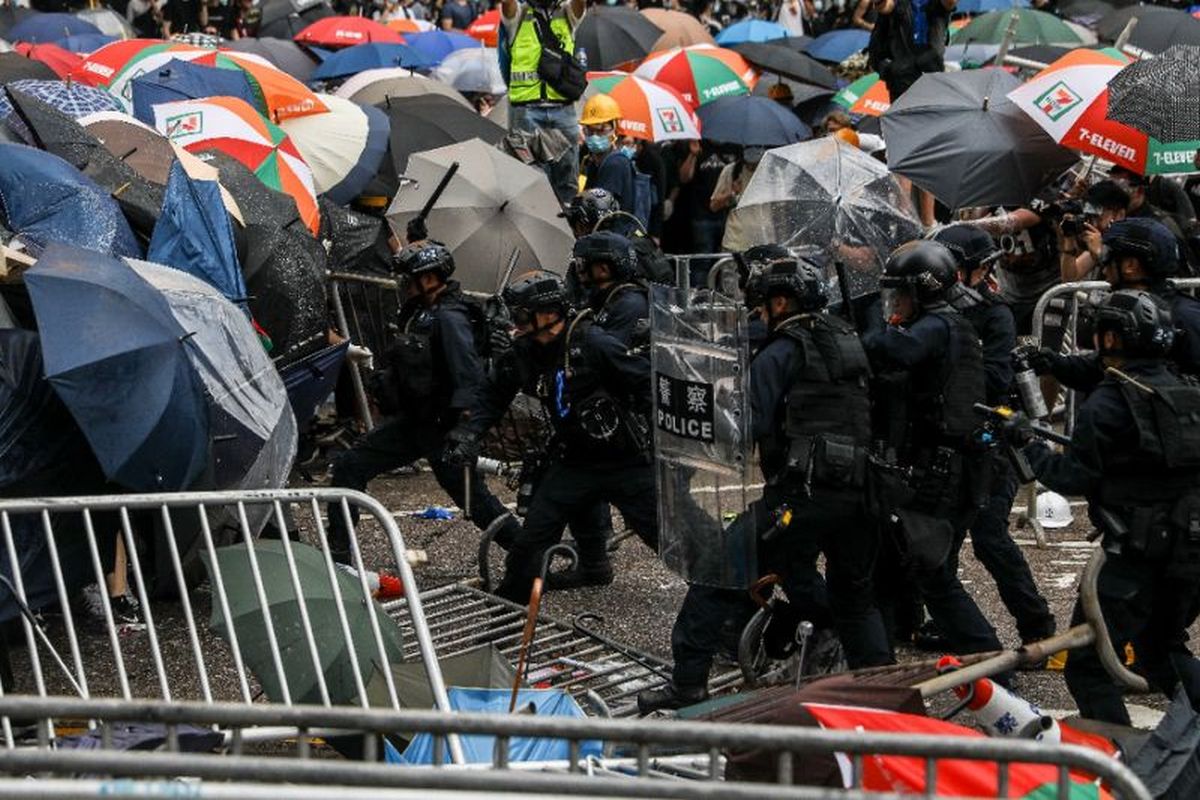Trump’s Gambles
President-elect Donald Trump is making news even before assuming the presidency. This is not surprising because he is known for his mercurial and unpredictable stances on many global as well as bilateral issues.
At St Francis’ Canossian College, the alma mater of Chief Executive Carrie Lam, students donning yellow helmets, goggles and masks knelt in front of the entrance and held placards bearing anti-government messages.

Hong Kong protests (Photo: AFP)
Thousands of defiant school students across Hong Kong skipped classes on Monday, using the first day of the new academic year to add their voices to anti-government protests which has fuelled months of unrest in the city.
The students, most of them wearing black t-shirts over their uniforms, were expected to head to the city centre for a rally in Edinburgh Place against the now-shelved extradition bill, which would have allowed the transfer of fugitives to jurisdictions with which Hong Kong lacks an extradition deal, including mainland China, the South China Morning Post reported.
Advertisement
The school boycott, co-organised by localist party Demosisto, was part of a broader anti-government campaign triggered by the bill. Organisers have estimated as many as 10,000 secondary students from close to 200 schools would boycott classes, with half of them expected to show up at the rally.
Advertisement
On Chai Wan Road, to the east of the island, pupils and alumni from three nearby secondary schools formed a human chain on the 650-metre slope leading up to the Eastern Highway.
At St Francis’ Canossian College, the alma mater of Chief Executive Carrie Lam, six students donning yellow helmets, goggles and masks knelt in front of the entrance and held placards bearing anti-government messages.
The students said they hoped Lam would listen to their voices and agree to the protesters’ five demands which include total withdrawal of the bill and the term “revolt” in referring to the demonstrations, amnesty for those arrested, an independent investigation into police brutality in dispersing protests, and the introduction of universal suffrage.
Meanwhile, Education minister Kevin Yeung Yun-hung has stressed that the authorities opposed to any class boycott and would closely monitor the situation, reports the South China Morning Post. He also said the authorities would call head teachers to see if there were any anomalies and would leave it to the schools to decide if punishment was needed.
The students’ boycott coincides with a similar action planned by university students from 10 tertiary institutions. The tertiary students were being called on to converge on Chinese University on Monday afternoon to stage a mass sit-in.
But the university has urged its student union to cancel the rally “to safeguard the safety” of staff and attendees, according to the institution. It said hosting a rally on campus posed a high risk after the weekend’s violence. Hong Kong has seen 13 consecutive weeks of mass protests sparked by the bill.
Though the proposed law has been declared “dead” by Lam, the anti-extradition bill campaign has morphed into a broader movement seeking to reverse a general decline in freedoms and investigate alleged police brutality and violations of law.
Advertisement